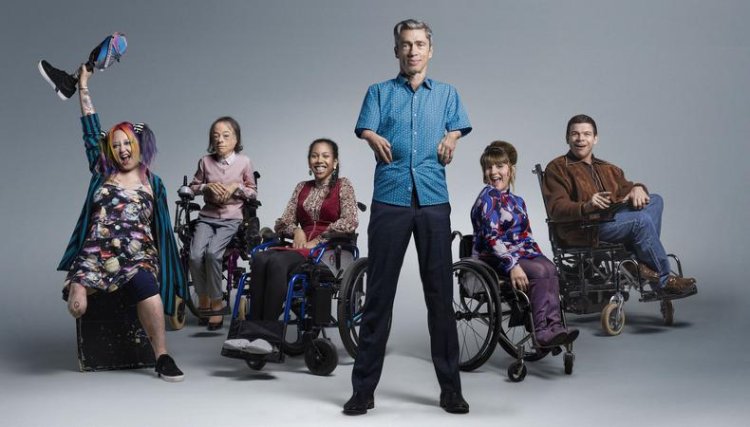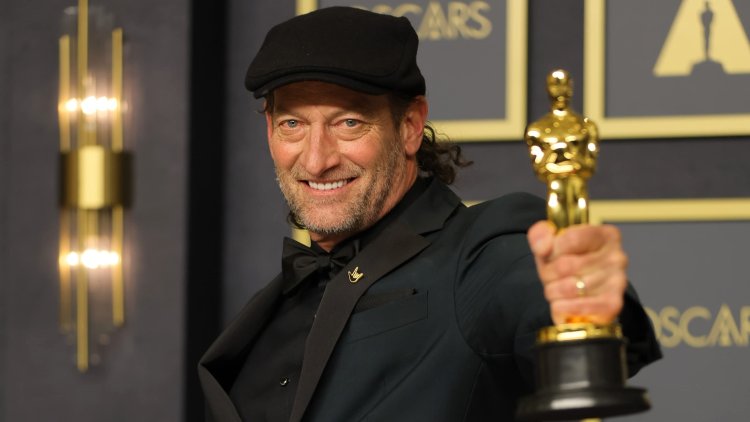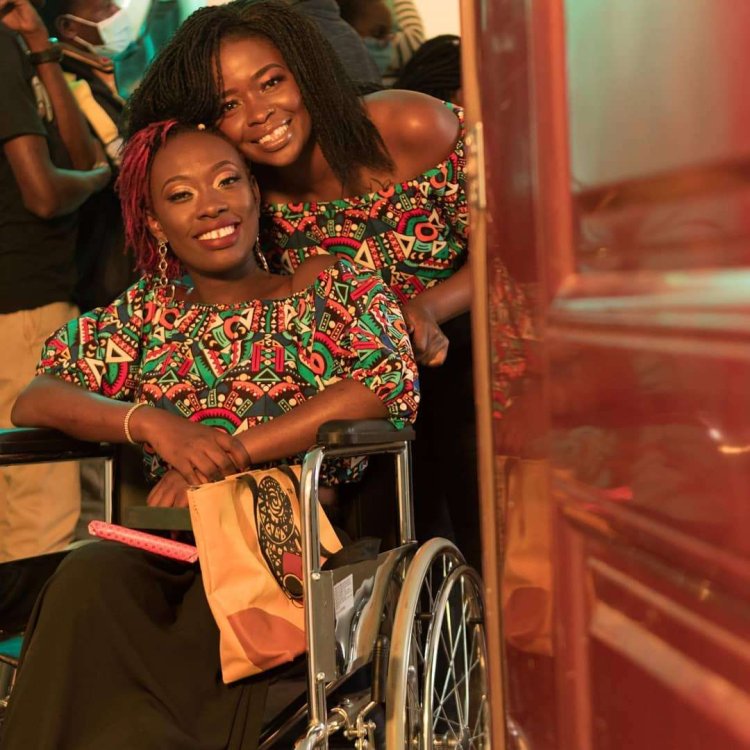OORO: Casting Disabled Talent is a Key Facet of Diversity Worth Embracing
Kenya’s film and TV industry requires a reboot and a shift of mindset when it comes to employing disabled talent both onscreen and behind the scenes

"The deaf community, the Coda community, the disabled community. This is our moment.”
These were the words of Troy Kotsur after winning an Oscar for Best Supporting Actor at the 94th Academy Awards in 2022. Kotsur won the coveted accolade for his role as fisherman Frank Rossi in ‘Coda’.
The film’s title is a titular acronym that stands for "child of deaf adults", is a heart-warming coming-of-age comedy-drama about a teenage girl navigating her way through high school, life, and growing up as the only hearing member of a deaf family.
He became only the second deaf actor to win an Oscar, after Marlee Matlin’s best actress award for ‘Children of a Lesser God’ in 1987.
Since its debut, it racked up critical global acclaim and a slew of awards. The film, which was directed by Sian Heder, was nominated for Best Adapted Screenplay, Best Supporting Actor, and Best Picture – it won all three. Kotsur became the first male deaf actor to win an Oscar.

Actor Troy Kotsur holding his Oscars trophy. /IMDB
Upon accepting his Supporting Actor trophy from actress Youn Yuh-jung, he signed a funny and heartfelt speech.
"This is dedicated to the deaf community, the CODA community and the disabled community. This is our moment," he concluded.
The film also made history at the Screen Actors Guild (SAG) Awards earlier the same year, taking home the prizes for Outstanding Cast and Actor in a Supporting Role for Kotsur. It broke ground as the first film with a predominantly deaf cast to receive the award and Kotsur became the first deaf actor to be nominated for and win an acting SAG.
"You are all our peers,” Matlin signed for the cast's acceptance speech then. “We, deaf actors, have come a long way.”
A few weeks later, ‘CODA’ made history again at the British Academy of Film and Television Awards (BAFTA) Awards in London, where Kotsur once more became the first deaf actor to win a BAFTA when he bagged the Best Supporting Actor gong.
Accurate depictions are, of course, most reliably achieved by casting disabled actors in the first place. A tendency still exists industry-wide to cast able-bodied actors in disability roles, and in addition to lacking authenticity, this diminishes the unique identity and physicality that accompanies being a disabled person.
So-called “cropping-up” can bring actors like Eddie Redmayne critical acclaim and an Oscar nomination for his portrayal of Stephen Hawking in the 2014 film ‘The Theory of Everything’ but also prevents disabled actors from building any kind of profile or name value.
‘Sungura’, a short Kenyan film follows a disabled woman grappling with stigma as she goes through the journey of discovery to figure out her sexuality as a young, vibrant woman.
Florence Njeri, the actress who plays the role of “Kemunto”, the main character of the film, is not a wheelchair user like the role she portrays but uses a prosthetic leg that helps her get around.
“When I saw the advert for the Sungura auditions I decided to try it out because it’s so rare to see a film trying to incorporate someone with a disability," she said.
A wheelchair user watching this film is included and represented by the film. Specific aspects of the life of a disabled person are explored; these include inaccessibility to physical spaces, social exclusion, ableism, and assumptions of asexuality under having a disability.
Of course, there are great examples of incidental, non-defining disability depiction as well, such as ‘Lisilojulikana’ (Unknown), a 70-minute dramatic film designed to not only educate but to also inspire and drive attitudinal change towards children with cerebral palsy. It tells the story of Grace, played by 15-year-old Vanessa, who has cerebral palsy herself and is severely physically disabled.
The film was chosen as the best medium to convey this message for several reasons: it’s deadpan and an authoritative depiction of fear and superstition attached to children with cerebral palsy in Kenya and elsewhere in Africa.
In 2019, many leading lights in Hollywood, including Bryan Cranston, Danny DeVito, Edward Norton and Ruth Madeley signed an open letter to executives demanding they “embrace disability as a key facet of diversity.”
The letter further stated, “In the history of the Academy Awards, among the 61 Oscar nominees and 27 winners playing characters with a disability, only two were authentically portrayed by an actor with disability.”
Disabled actors, media professionals and expert contributors have always been grossly underrepresented in the film and TV industry.
In 2020, in what the British Broadcasting Corporation (BBC) called "the biggest financial investment to on-air inclusion in the industry,” the corporation announced that it was allocating £100 million to the production of “diverse and inclusive content.”
The all-around diversity investment, described as a “big leap” by Director-General Tony Hall, runs up to 2024 and is supplemented by a commitment to ensuring that 20% of off-screen talent comes from under-represented groups.

Cast of the Kenyan short film, 'Sungura'. /KENYAN VIBE
Ultimately, Kenya’s film and TV industry requires a reboot and a shift of mindset when it comes to employing disabled talent both onscreen and behind the scenes.
By telling stories people can relate to, drama can attract large audiences, be easily understood regardless of literacy or education, and is very effective at evoking empathy and inspiring discussion.
Perhaps it will require more effort from industry luminaries and the Kenyan government, to convince local filmmakers to cast more disabled talent to tell their own stories, but without the right level of input from disabled members of the national assembly, government dignitaries, media and corporate executives, such stories will never be as credible or pure as they otherwise might have been.
Ooro George is a Kenyan journalist, art critic, digital stories, and cross-cultural curator. You can reach him via LinkedIn here, through email: oorojoj@gmail.com and on X @OoroGeorge






